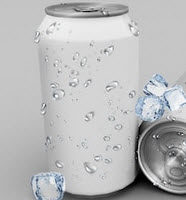Popular Sparkling Water Brand La Croix Faces Lawsuit; Plaintiff Alleges that Ingredients are Not ‘All-Natural’

If you have entered virtually any grocery store in South Florida in the last few years, you have most likely seen displays selling the popular sparkling water ‘La Croix’. Fortune Magazine reports that the company’s sales are exploding, with revenue up by nearly 35 percent in the last two years. Young consumers have flocked to the beverage as a replacement for sodas and other sugary drinks. However, new questions are being raised over the marketing of La Croix. A plaintiff in Cook County, Illinois contends that the sparkling water is not nearly as ‘innocent’ as it seems.
Understanding the Lawsuit Against La Croix
The plaintiff alleges that company’s claims that ‘La Croix’ products are ‘all natural’ are false. While labels, packaging, and marketing content claim that La Croix has only two ingredients (carbonated water and natural flavor), the plaintiffs allege that non-natural ingredients and synthetic compounds are used in the manufacturing process. Among other things, the lawsuit states that the sparkling water is manufactured with limonene and linalool. These chemicals are common in insecticides.
The company is not taking these allegations lying down. To be sure, at this point, it is not clear as to what evidence the plaintiffs are using to support the complaint. And for its part, National Beverage Corporation — the Fort Lauderdale, Florida-based company that owns and distributes La Croix products — vehemently denies the claims raised in the complaint. In fact, the company contends that the lawsuit filed by the plaintiff is wholly baseless.
What is False Advertising?
False advertising cases are notoriously complex. At Pike & Lustig, our West Palm Beach business lawyers have a comprehensive understanding of these cases and the relevant state and federal regulations. In Florida, companies are prohibited from ‘unfair or deceptive’ advertising in any good or service.
How is ‘unfair and deceptive advertising’ defined? In Florida, plaintiffs generally need to prove that a defendant made a material misrepresentation of fact or omitted a material fact. Statements that are ‘puffery’ or ‘opinion’ are generally not false advertising, regardless of the quality of the underlying product or service.
For example, an eatery that advertises “delicious pizza” is not guilty of false advertising simply because many consumers actually dislike their product. Delicious is fundamentally an opinion based terminology. However, if the eatery states that they won an award for best pizza in South Florida, and that turns out to be a false statement, that is deceptive advertising and thus a violation of Florida law.
Whether or not La Croix’s claims to be ‘all natural’ amount to be false or deceptive advertising will depend entirely on the specific evidence presented by each party.
Contact Our South Florida Business Attorneys
At Pike & Lustig, LLP, our Florida commercial law attorneys have deep experience handling false advertising claims. If your company is facing a lawsuit over advertising regulations, we can help. For a fully private consultation, please do not hesitate to contact our legal team today. We have offices in West Palm Beach, Miami, and Palm Beach Gardens.
Resource:
fortune.com/2017/07/27/la-croix-trend-millennial/



